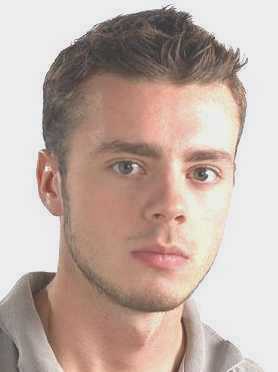Next Stop? Brazil. Advising Össur, a World Leader in the Orthopaedics and Prosthetics Industries, on Expanding into the Brazilian Market
By Karl Bjornsson, Business Administration with Studies in Asia Graduate (with First Class Honours), 2012
In the summer of 2011, I worked for an Icelandic company called Össur, a world leader in the orthopaedics and prosthetics industries. While most people may not recognise the firm, many may recognise one of their products worn by the South African amputee runner, Oscar Pistorius, better known as the “blade runner” who also happens to be the world’s fastest man on no legs, a feat not easily achieved. While working there, I assisted the company in analysing emerging markets and potential opportunities there. When it came to deciding on a topic for my dissertation for the Kent Business School, I rang up the company and asked them if they would be interested in me writing a report on the potential of setting up operations in Brazil and how this could be accomplished. Knowing the potential that Brazil has to offer as an emerging economy, they were keen on letting me conduct research that could highlight areas for further expansion.
Before commencing, I needed a supervisor knowledgeable in the field of international business. During my second year at Kent I had taken CB523 International Business with Dr. Carmen Stoian. Her teaching and the module content had made me appreciate international business as an area that I would possibly want to become involved in future employment. Furthermore, she made an impression on me as someone you did not want to disappoint and would therefore keep me motivated and on target. Basically, she would make sure I did not get lazy. This was a good thing, as I realised early on that I might have bitten off a little more than I could chew.
In order to investigate the Brazilian market effectively, I would need to conduct some primary research ideally though surveys. This was an extremely time consuming process. Using the ideas of other researchers and incorporating them with my own, I created three separate questionnaires aimed at local vendors and distributors, multinational enterprises operating in Brazil, and hospitals and specialised medical centres. These then had to be translated into Portuguese, which I did with the help of a Brazilian friend. Through rigorous research, I had managed to secure some 160 email addresses for orthopaedic and prosthetic professionals and firms in Brazil. Several challenges with the data collection process highlighted the perils of conducting primary research and made me realise how important flexibility was when working and researching in international business.
From my discussions with various contacts in the company, I gathered that any potential entry would involve the development of a lasting presence in the domestic market. Based on their other international expansions, I therefore made the assumption that they would also wish to augment and protect the firm’s existing ownership advantages, which would contribute to their competitive advantage in Brazil. They would also need to develop and foster strategic networking capabilities within the market and industry primarily due to the inefficient nature of formal market-supporting institutions and the general nature of informal institutional settings that prescribe that networking and relationships with key stakeholders, and especially the government, govern the success or failure of business ventures in Brazil. Furthermore, in order to counter the effects of institutional volatility, I found that Össur should opt to enter Brazil through a majority-ownership acquisition of a strong local manufacturer, in either São Paulo or Rio de Janeiro, in order to reduce undue transaction costs and uncertainty. Furthermore, the firm would require product and process adaptation to local conditions and structure operations to allow for responsiveness to local markets.
According to sources at the firm, my findings were very well received and were well aligned with proposed ideas for entry into Brazil. While the project has not yet become reality, it seems more likely than not that it may do so in the near future, which is of course the highlight of the entire research and writing experience. Conducting a research assignment in cooperation with a firm using a realistic business case achieved what university course material often struggles to do, but that is to bridge academia with real practice. Writing this paper required me to link together academic material and the requirements of an actual business in what was perhaps the most difficult, yet most enriching experience during my time at Kent. It also contributed to me being guaranteed employment with the company in question, where I was asked to present my findings to key employees involved in emerging markets projects. My advice to anyone planning on doing similar research would be to allow yourself plenty of time and not to start too late.
Find a good supervisor knowledgeable on your topic and if you can, work in close cooperation with a firm for whom you can conduct your research. It may well land you a job once you leave Kent.

